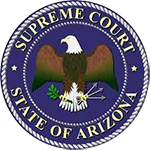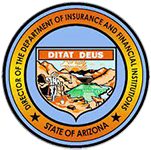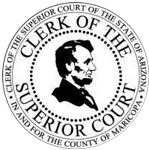Arizona Conservatorship Services
Dynasty Legal Documents will prepare your documents for your Conservatorship of an Adult or Child.
There are several steps included in this service such as drafting all documents needed to be appointed, coordinating with the probate department at the court to schedule your hearing, request attorney for ward, provide Notice of Hearing, file your Proof of Notice, Provide Physician’s Report to complete, coordinate process service, information regarding bonds, and inform you of important deadlines.
Additional forms will be needed throughout your Conservatorship such as the Inventory and Appraisement, Proof of Restricted Accounts, Confidential Filings, and filing of your Annual Accounting.
(Additional costs may include court costs, recording, court investigator fee, process server and certification fees)
Training to be a Conservator:
Training is required in order to be appointed as Conservator. Required courses are: Non-Licensed Fiduciaries General Overview and Conservatorship. Below is the link to training:
https://www.azcourts.gov/probate/Training.aspx
Arizona State Legislature regarding Conservatorship:
Per the Arizona State Legislature, subject to the limitations provided in section 14-5425, a conservator has all the powers conferred herein and any additional powers conferred by law on trustees in this state. In addition, a conservator of the estate of an unmarried minor, as to whom no one has parental rights, has the duties and powers of a guardian of a minor described in section 14-5209 until the minor attains the age of majority or marries, but the parental rights so conferred on a conservator do not preclude appointment of a guardian as provided by article 2 of this chapter.
- A conservator, without court authorization or confirmation, may invest and reinvest funds of the estate as would a trustee.
- A conservator, acting reasonably in efforts to accomplish the purpose of the appointment, may act without court authorization or confirmation to:
- Collect, hold and retain assets of the estate including land in another state, until, in the conservator’s judgment, disposition of the assets should be made. Assets may be retained even though they include an asset in which the conservator is personally interested.
- Receive additions to the estate.
- Continue or participate in the operation of any business or other enterprise.
- Acquire an undivided interest in an estate asset in which the conservator, in any fiduciary capacity, holds an undivided interest.
- Invest and reinvest estate assets in accordance with subsection B of this section.
- Deposit estate funds in a state or federally insured financial institution including one operated by the conservator.
- Acquire or dispose of an estate asset including land in another state for cash or on credit, at public or private sale, and manage, develop, improve, exchange, partition, change the character of or abandon an estate asset.
- Make ordinary or extraordinary repairs or alterations in buildings or other structures, demolish any improvements and raze existing or erect new party walls or buildings.
- Subdivide, develop, or dedicate land to public use, make or obtain the vacation of plats and adjust boundaries, adjust differences in valuation on exchange, partition by giving or receiving considerations and dedicate easements to public use without consideration.
- Enter for any purpose into a lease as lessor or lessee with or without an option to purchase or renew for a term within or extending beyond the term of the conservatorship.
- Enter into a lease or arrangement for exploration and removal of minerals or other natural resources or enter into a pooling or unitization agreement.
- Grant an option involving disposition of an estate asset, or take an option for the acquisition of any asset.
- Vote a security, in person or by general or limited proxy.
- Pay calls, assessments and any other sums chargeable or accruing against or on account of securities.
- Sell or exercise stock subscription or conversion rights and consent, directly or through a committee or other agent, to the reorganization, consolidation, merger, dissolution or liquidation of a corporation or other business enterprise.
- Hold a security in the name of a nominee or in other form without disclosure of the conservatorship so that title to the security may pass by delivery, but the conservator is liable for any act of the nominee in connection with the stock so held.
- Insure the assets of the estate against damage or loss, and the conservator against liability with respect to third persons.
- Borrow money to be repaid from estate assets or otherwise, advance money for the protection of the estate or the protected person, and for all expenses, losses, and liability sustained in the administration of the estate or because of the holding or ownership of any estate assets, and the conservator has a lien on the estate as against the protected person for advances so made.
- Pay or contest any claim, settle a claim by or against the estate or the protected person by compromise, arbitration, or otherwise and release, in whole or in part, any claim belonging to the estate to the extent that the claim is uncollectible except that personal injury or wrongful death claims shall be compromised pursuant to subsection D of this section.
- Pay taxes, assessments, compensation of the conservator and other expenses incurred in the collection, care, administration and protection of the estate.
- Allocate items of income or expense to either estate income or principal, as provided by law, including creation of reserves out of income for depreciation, obsolescence or amortization, or for depletion in mineral or timber properties.
- Pay any sum distributable to a protected person or dependent of the protected person, without liability to the conservator, by paying the sum to the distributee or by paying the sum for the use of the distributee either to the guardian of the distributee or, if none, to a relative or other person having custody of the person.
- Employ persons, including attorneys, auditors, investment advisors or agents, even though they are associated with the conservator, to advise or assist the conservator in the performance of administrative duties, act upon their recommendation without independent investigation and, instead of acting personally, employ one or more agents to perform any act of administration, whether or not discretionary.
- Prosecute or defend actions, claims or proceedings in any jurisdiction for the protection of estate assets and of the conservator in the performance of fiduciary duties.
- Execute and deliver all instruments which will accomplish or facilitate the exercise of the powers vested in the conservator.
- A conservator may act with court approval to compromise a personal injury or wrongful death claim for a protected person. The conservator may act with court approval to release an alleged tortfeasor if the release is in the best interest of the protected person. If the conservator obtains an order of approval for compromise from a court of competent jurisdiction, the compromise may be in exchange for a lump sum amount or an arrangement that defers the receipt of part or all of the consideration for the compromise until after the protected person reaches majority and may involve a structured settlement or the creation of a trust on the terms that the court approves for any protected person.
The Arizona State Legislature Link to Powers of Conservator in Administration:









